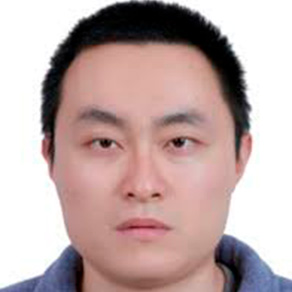
Yi Ma
On the Principles of Parsimony and Self-Consistency: Structured Compressive Closed-Loop Transcription
Summary
Ten years into the revival of deep networks and artificial intelligence, we propose a theoretical framework that sheds light on understanding deep networks within a bigger picture of intelligence in general. We introduce two fundamental principles, Parsimony and Self-consistency, that address two fundamental questions regarding Intelligence: what to learn and how to learn, respectively. We argue that these two principles can be realized in entirely measurable and computable ways for an important family of structures and models, known as a linear discriminative representation (LDR). The two principles naturally lead to an effective and efficient computational framework, known as a compressive closed-loop transcription, that unifies and explains the evolution of modern deep networks and modern practices of artificial intelligence. Within this framework, we will see how fundamental ideas in information theory, control theory, game theory, sparse coding, and optimization are closely integrated in such a closed-loop system, all as necessary ingredients to learn autonomously and correctly. We demonstrate the power of this framework for learning discriminative, generative, and autoencoding models for large-scale real-world visual data, with entirely white-box deep networks, under all settings (supervised, incremental, and unsupervised). We believe that these two principles are the cornerstones for the emergence of intelligence, artificial or natural, and the compressive closed-loop transcription is a universal learning engine that serves as the basic learning units for all autonomous intelligent systems, including the brain.
Related papers can be found at:
https://arxiv.org/abs/2207.04630 and https://www.mdpi.com/1099-4300/24/4/456/htm.
Short bio
Yi Ma is a Professor at the Department of Electrical Engineering and Computer Sciences at the University of California, Berkeley. His research interests include computer vision, high-dimensional data analysis, and intelligent systems. Yi received his Bachelor’s degrees in Automation and Applied Mathematics from Tsinghua University in 1995, two Masters degrees in EECS and Mathematics in 1997, and a PhD degree in EECS from UC Berkeley in 2000. He has been on the faculty of UIUC ECE from 2000 to 2011, the principal researcher and manager of the Visual Computing group of Microsoft Research Asia from 2009 to 2014, and the Executive Dean of the School of Information Science and Technology of ShanghaiTech University from 2014 to 2017. He then joined the faculty of UC Berkeley EECS in 2018. He has published about 60 journal papers, 120 conference papers, and three textbooks in computer vision, generalized principal component analysis, and high-dimensional data analysis. He received the NSF Career award in 2004 and the ONR Young Investigator award in 2005. He also received the David Marr prize in computer vision from ICCV 1999 and best paper awards from ECCV 2004 and ACCV 2009. He has served as the Program Chair for ICCV 2013 and the General Chair for ICCV 2015. He is a Fellow of IEEE, ACM, and SIAM.























